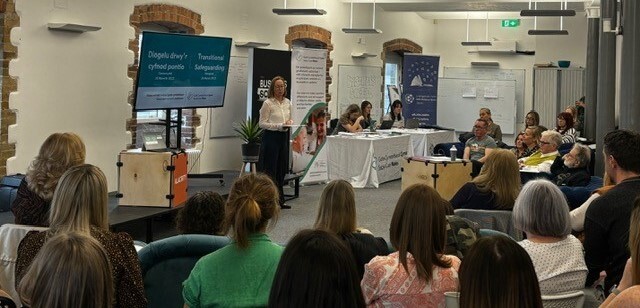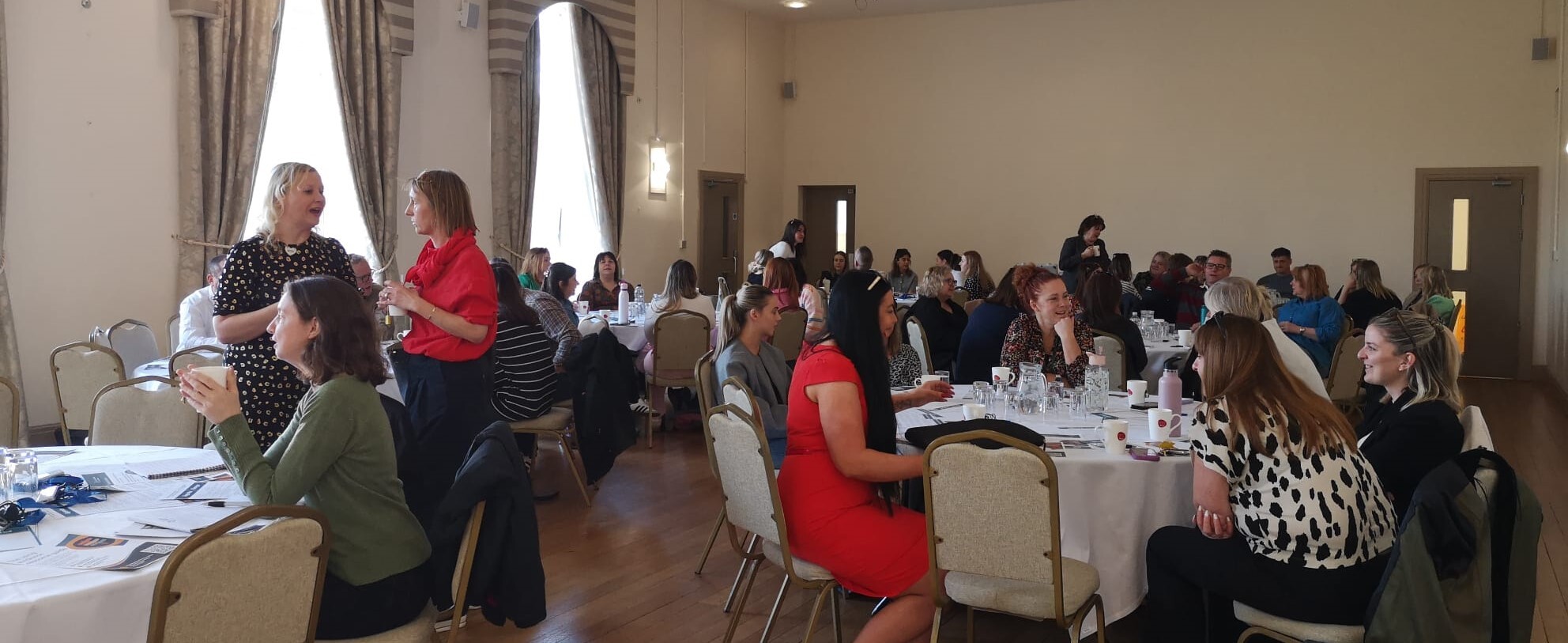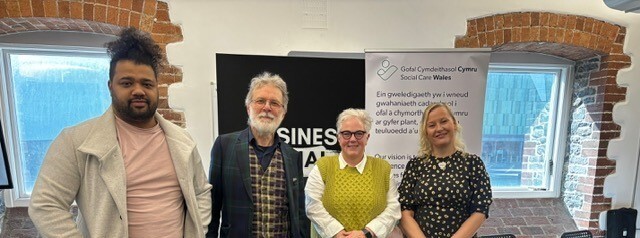In this blog Evidence and engagement co-ordinator Sarah Atkinson celebrates our two most recent research roadshows hosted by local authorities in north and south Wales.
Background to the research roadshows
We’re supporting practitioners to access, and benefit from, the work of academic researchers and people with lived experience.
In 2024, we successfully piloted a new approach to make our roadshows as accessible as possible.
We went directly to the practitioners, running sessions with local authorities to lessen barriers like travel time and costs. We've built on this approach with two new roadshows held in Newport and Bangor.

“The roadshow was an excellent event and the balance between hearing from someone with lived experience and world-renowned academics was really well executed. The discussion points in the afternoon were very relevant and well thought out.”
– Research roadshow participant
What are the aims of the research roadshows?
- To explore a research topic that people working in social care told us they wanted to learn more about.
- To promote the value of research and how it can be relevant to social care practice.
- To provide bitesize, interactive and practical sessions.
What is Transitional Safeguarding?
“Safeguarding is a verb not a noun” - Dez Holmes, Research in Practice
The term ‘Transitional Safeguarding’ describes an approach to safeguarding that supports young people through their transition into adulthood. This is a challenging time for vulnerable young people because the services and support they’ve known as children can change or end completely when they reach 18 years of age.
Transitional Safeguarding is a flexible, evidence informed and responsive approach rather than a fixed model or system. It helps to bridge significant differences in children and adult safeguarding systems to create a smoother transition between the two.

“Using research more effectively to inform practice, involving voice of young people in planning, embedding idea that safeguarding is a verb and not a noun.”
– Research roadshow participant
Sharing knowledge through lived experience and academic research
Presenters at our Newport and Bangor events shared their academic research and personal journeys and made a strong case for the importance and benefits of evidence-based practice. Wes Cunliffe told the inspirational story of how he turned his life around. He shared how he escaped involvement with county lines gangs as a vulnerable teenager because of supportive relationships and individuals who recognised his strengths and skills. Amy Thatcher Jones shared her story as a looked after child. And how she uses this personal experience to guide her current role as a team manager of the support team engaging with young people transitioning from care.
Professor Christine Cocker of the University of East Anglia outlined the key principles underpinning Transitional Safeguarding.
These include being:
- evidence-based
- context specific
- aware of differences between’ transition’ and ‘Transitional Safeguarding’
- relational, ethical and understanding the impact of equality, diversity and inclusion
- participatory.
Christine talked about taking a clear and critical approach to safeguarding, emphasising that the 'soft stuff is actually the hard stuff'. This reflects a need for a whole system approach to change.

Professor Michael Preston Shoot in his presentation ‘Using an evidence-base to promote best practice’ drew from his experience working with care experienced young people, both from his social work practice and serious case reviews.
This presentation highlighted the need to better prepare and support everyone who works with children and young adults, drawing attention to the missing or unheard voices of the people who know the individual best.
Michael outlined the legislation and guidance in place for statutory bodies working specifically with young people leaving care, and the gaps in good provision and resulting failures.
“Be the person who makes them feel seen, heard and supported”
Sioned Owen a social worker in the leaving care team in Gwynedd, spoke about her approach to practice and her own journey and learning. Sioned reflected on how she’s used story sharing to focus on what matters most to people and the importance of strong relationship building.
Sioned’s relational approach was key to Amy’s personal story. As her social worker, Sioned modelled an approach that Amy would later adopt in her own practice as a support worker.
Dr Ceryl Davies and Dr Louise Prendergast (Bangor University) shared their work with Welsh local authorities, academics and young people leaving care, to co-produce a care leavers toolkit for practitioners. The toolkit supports effective engagement built around trust, voice, choice and control.
Download care leavers toolkit
Reflections
Towards the end of each event, everyone had the opportunity to reflect on what had been shared. This was also a chance for people to consider their own personal and collective ‘next steps’ based on what they had learnt.
To frame these discussions, we shared discussion points, which the presenters had suggested. In the Developing Evidence Enriched Practice (DEEP) approach we call these provocative statements or talking points.
For example:
"The gap between children and adult social care, health, education, mental health and justice services is too big. We’ll never be able to create something better."
Provocative statements like this engage people's minds and hearts. We ask them to use Exploratory Talk to share why they agree or disagree with the statement. Everyone, has the chance to share, and different viewpoints and opinions are explored in an open and non-judgemental way.
On the day, the presenters’ discussion points generated lots of rich conversation.




